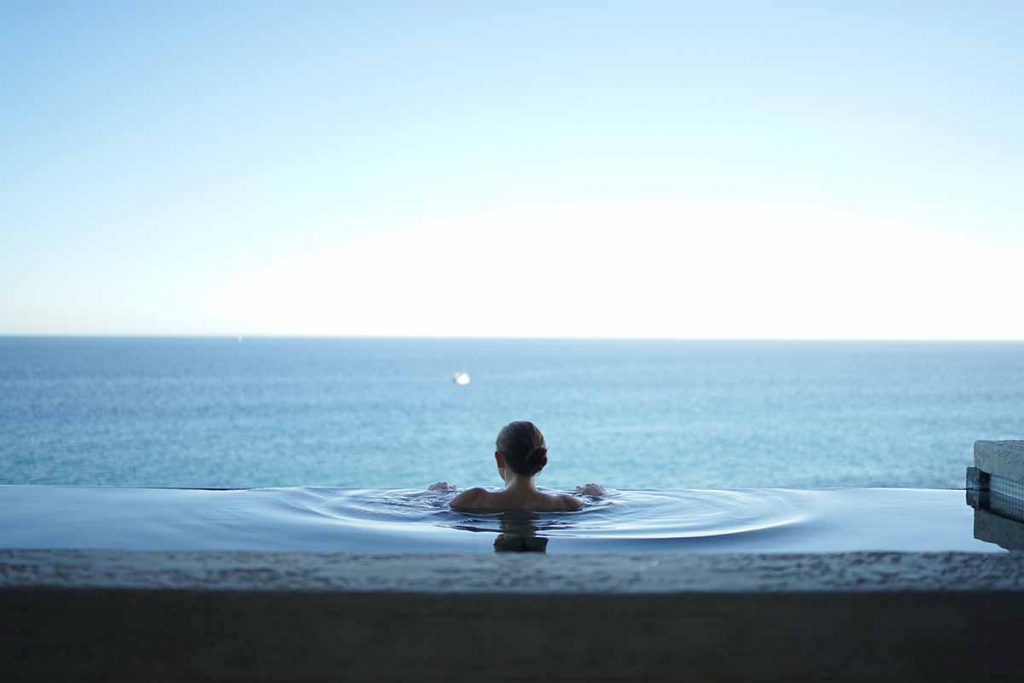
From weaving holistic wellness experiences, to caring for each other and our planet, the biggest wellness trends for 2022 will straddle a line between back to basics and cutting edge.
Consumer interest in wellness continues to grow as we move forward into 2022, and the hospitality industry continues to find new and innovative ways to incorporate wellness into the guest experience.
The 18 months since the onset of the COVID-19 pandemic have been a challenge, to say the least. But they’ve also been a learning experience and have shaken up the industry in ways that some would say were much needed, leading to the adoption of new technologies, diversification of revenue streams, and a surge in creative thinking.
Last year, mental and immune health emerged as top priorities, along with sleep management and interest in psychedelic medicine. These trends continue alongside other new developments. From weaving holistic wellness experiences, to caring for each other and our planet, we believe the biggest wellness trends for 2022 will straddle a line between back to basics and cutting edge.
Here are seven wellness trends for 2022:
 Weaving wellness into the fabric of the hospitality experience
Weaving wellness into the fabric of the hospitality experience
Wellness tourism will be hugely popular in the coming year and beyond. As we know, interest in wellness, an already booming industry, has intensified during the pandemic, and people are itching to travel.
In a recent survey of 2,500 people by the Wellness Tourism Association, 84% of respondents said they participate in wellness activities when they travel, and 61% reported that they’re currently planning a wellness vacation.
Industry veterans often note that when they started in the hospitality sector, spa was an amenity or an adjunct service offered not as an integrated part of the hotel experience but as an add on to it. Those days are gone.
Today, the best hospitality companies weave wellness into the fabric of the entire guest experience and have a true understanding of its revenue generating power. This means incorporating wellness into the design of buildings and the atmosphere of guest rooms. It means optimizing guest sleep experiences, offering food and beverage options designed to enhance wellbeing, and creating programs to do the same in unique and exciting ways.
For example, Emlyn Brown, Vice President, Wellbeing for Accor Luxury & Premium brands, has said his goal is “to surpass the expectations of our guests and to infuse their entire experience with opportunities for transformative, innovative and extraordinary moments of wellbeing.”
And, in an interview with Spa Executive about her book, The Wellness Asset, How wellness can transform and futureproof your hotel, global wellness expert, Sonal Uberoi said, “Wellness is the new luxury that today’s consumers are looking to our industry to provide as they pursue a state of wellbeing that allows for a fuller human experience than traditional hospitality typically provides.
“It has become standard to find a spa and gym in five-star luxury hotels, but the market now demands increasingly more sophisticated, integrated wellness experiences.”
Uberoi writes, “Wellness is no longer confined to a specific activity or a physical space; real wellness is more than a spa, a gym or a studio. The definition of wellness is broad and involves anything that enhances overall wellbeing. Therefore, a lot of activities – such as horse riding, hiking in the mountains, cooking classes and coaching sessions, or wine tasting – that many hoteliers are already offering their guests are essentially wellness-related activities. Once you accept that you can’t keep away from wellness – whether you have an urban hotel or a resort, whether you are budget, mid-scale or luxury – you start seeing the immense revenue-generating opportunity in front of you that wellness adds to your hotel offering.”
Wellness is now an integral part of the holistic, hospitality experience. This will become even more the case in the coming year as travel picks up again and hotels and resorts regain their momentum.
 Sustainability
Sustainability
Sustainability is not a new trend. It has been a major focus of conscious companies and consumers for several years. People care deeply about the future of the planet they’re leaving to their children and their children’s children. The focus on sustainability, however, shifted to more immediate concerns during the pandemic, and will now swing back. Case in point: Forbes Travel Guide is implementing sustainability standards as part of its rating system.
Amanda Frasier, Executive Vice President of Standards & Ratings, told us in this month’s Spotlight interview, “Just before the pandemic hit, a big focus for us was launching sustainability standards. We paused releasing them because it wasn’t the right time to start evaluating people’s performance against reduction of single use plastics when, suddenly, everything had to be individually wrapped because of hygiene concerns and there were millions of masks and miniature bottles of hand sanitizer in circulation.” She added…
To continue reading, click here to download the Handbook: Seven wellness trends for 2022




